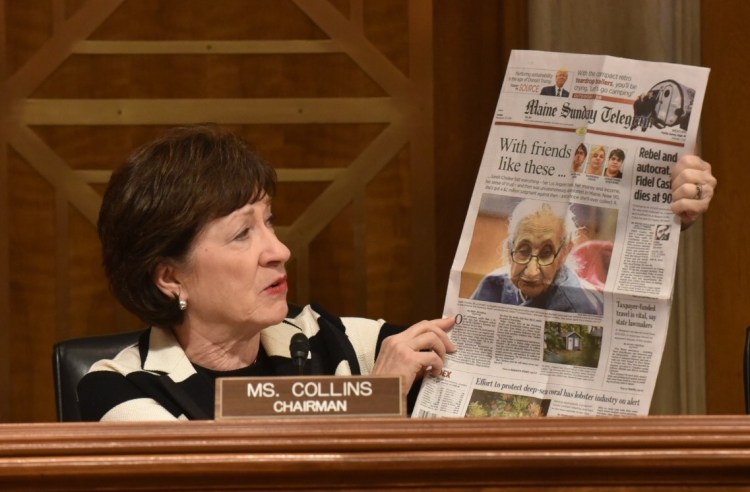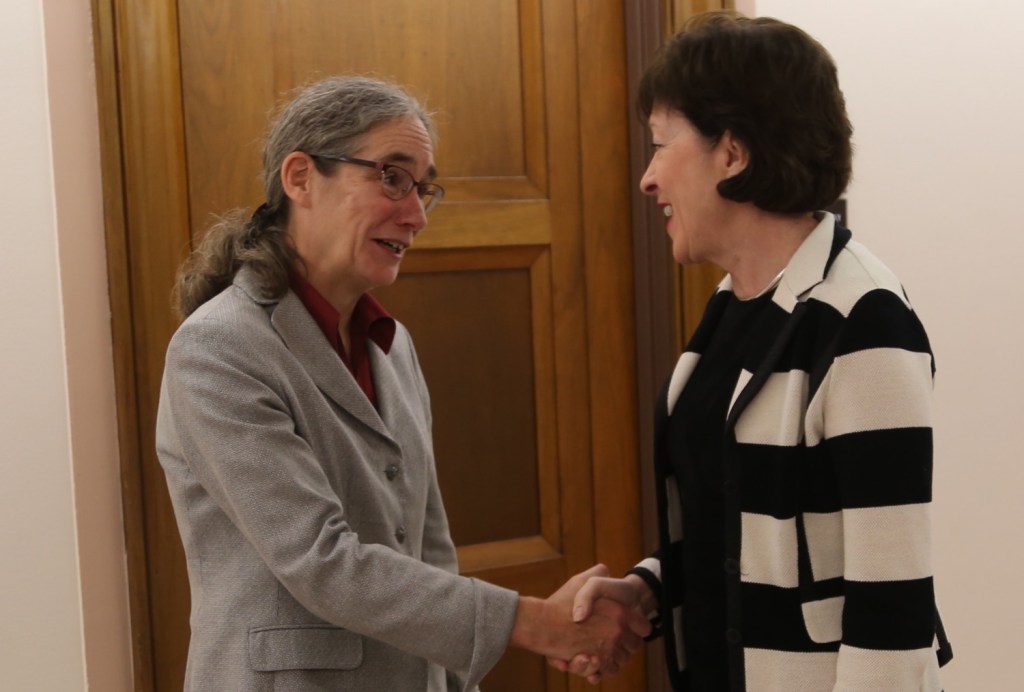An investigator with the Government Accountability Office said Wednesday that glaring holes in state data collection on financial abuse of seniors has made it nearly impossible to quantify the problem’s scope.
Kathryn Larin, acting director of the GAO’s Forensic Audit and Investigative Service Team, presented a new report to members of the U.S. Senate Aging Committee, which is chaired by Sen. Susan Collins of Maine. It’s the first comprehensive look at elder financial abuse since 2010.
But the 2016 GAO report is based on a limited review of eight cases between 2011 and 2015. The agency could examine only closed cases and it can sometimes take years for that to happen.
Larin testified that state court systems, not the federal government, are generally tasked with tracking financial abuse, but she said that’s not happening on a consistent basis, including in Maine. Some states interviewed by the GAO could not even provide information about the number of seniors under guardianship, and most do not have systems in place to track abuse. Also, most states are not sufficiently monitoring guardians. Maine lags in those areas as well.
Collins, who has spoken often about elder abuse in recent years, opened Wednesday’s hearing by talking about two high-profile cases of elder financial abuse in Maine, one involving a lawyer in Belfast, William Dawson Jr., who was sentenced this year to 30 months in prison for stealing nearly $500,000 from two elderly female clients.
The second was Sarah Cheiker, a California woman who was befriended by a couple who ultimately took over her finances and abandoned her in a remote Maine cabin.
Cheiker was the subject of a Nov. 27 story in the Maine Sunday Telegram. She now lives at a nursing home in Fryeburg and has been unsuccessful in recovering any of the money that was stolen from her.
Collins said in an interview before the hearing that it was ironic to read a story on the very topic she would be discussing that week.
“There is no doubt this problem is a very serious one and that the lack of data makes it difficult to quantify,” she said. “But I think it’s the tip of the iceberg.”
In addition to Larin, the Senate Aging Committee members heard testimony from Jaye Martin, who directs Maine Legal Services for the Elderly and was invited by Collins.
Martin said her organization, which provides no-cost legal services to Maine seniors, sees these types of cases regularly.
“At Legal Services for the Elderly, 48 percent of the elder abuse cases we handled in the past year involved financial exploitation, with 75 percent of those involving family members as the perpetrators,” she testified.
Martin shared a story about one of her agency’s clients, a World War II veteran who gave his daughter power of attorney after his wife passed away. The daughter moved in with him and took over his bank accounts.
“The daughter systematically isolated her father and took complete control over his money,” Martin said. “He finally sought help … after she refused to give him money to buy birthday gifts for his grandchildren.”
The man assumed he had $20,000 in savings but there was only $15 in the account. Bank records later revealed that the daughter had spent it all.
Martin said organizations like hers have heartbreaking anecdotal stories, but what they don’t have is any way to quantify the problem.
“As today’s GAO report notes, we are essentially blind to the scope and nature of the problem of abuse by guardians and conservators due to a lack of data,” she said. “Even less is known about the scope of abuse by agents under power of attorneys. This leaves these guardians and agents free to act with impunity.”
The GAO report said state court systems should periodically examine whether a guardianship is still needed, and that states should screen all guardians for criminal backgrounds and properly educate them on their responsibilities.
Cate Boyko manages the state of Minnesota’s Conservator Account Auditing Program and testified about the system that was created out of a pilot project. So far, it has been successful in monitoring guardians who have financial oversight.
Collins agreed the Minnesota program could serve as a model for other states, including Maine. She explained that it requires legal guardians of seniors to file regular reports, which are then analyzed with a software program that looks for any red flags.
“Ironically, the guardian is supposed to protect from financial exploitation, not commit these extraordinary breaches of trust,” Collins said.
During the hearing, Collins and Martin also discussed the Senior $afe Act, a bipartisan bill authored by Collins that would encourage banks and investment advisers to report fraud by providing these institutions and their employees with protection from lawsuits.
Send questions/comments to the editors.





Comments are no longer available on this story